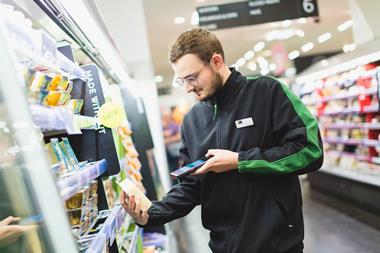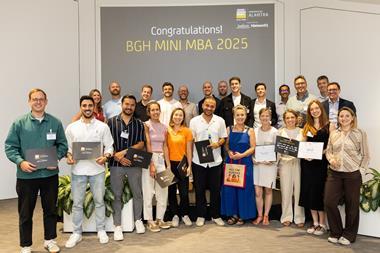
In 2022, the London School of Economics (LSE) was named the UK’s most outstanding entrepreneurial university at the Times Higher Education awards. Its alumni have achieved success in sectors from food to tech to finance. LSE Generate, the School’s home for entrepreneurship, is at the centre of this.
The fact LSE is taking entrepreneurship seriously is exciting. But even more exciting is the fact that, with the launch on 23 November of a new LSE Generate initiative – the Food & Beverage Deepdive Programme – its attention will be focused on those members of the LSE community working to build the next generation of food and beverage brands.
The premise is simple. Over 200 food and drink businesses have been set up by LSE alumni over the past decade. Notable alumni-founded brands include Nix & Kix, HelloFresh, Five Guys, Dalston’s Soda, Toast Ale, Franco Manca and Love Corn, among others. This shows great promise and innovation, but also that the sector is attractive to young professionals bubbling with ideas.
Fmcg can be a jungle of jargon
LSE students and graduates have great concepts for F&B brands, fuelled by their global perspectives and diverse backgrounds. Meanwhile, the wider F&B community, LSE alumni and faculty members have things that could be extraordinarily useful to them. This might include advice based on sector experience, technical knowledge of the industry, valuable contacts, or potential funding. Normally, whether the aspiring entrepreneurs get to benefit from this rich network of resources is left to chance. But that is changing thanks to a programme designed to connect the dots and establish the LSE as a centre of F&B entrepreneurship excellence.
The programme involves networking opportunities, webinars, tasting feedback sessions, investor matchmaking, and more. The programme is also not limited to the LSE network. In fact, it is inclusive and open to anyone in the wider London F&B ecosystem who has an interest either in building an F&B brand or in lending an expert hand to those on that journey.
To a newcomer, entering the F&B sector is daunting. With its jungle of jargon (listing fees, rrps, blended margins) and panoply of players (manufacturers, distributors, retailers, consultants), figuring out where to begin – let alone how to turn a profit – can seem impossible if you don’t have someone to explain the industry basics.
Moreover, once you have formulated a product idea and sketched out a big-picture plan, dreams of success can crack in the face of details that, to someone with limited experience, can feel scary and intractable.
For example, you want to create a prototype, but don’t want to have to order 10,000 units before you have a single customer. Some manufacturers can, with a creative approach, allow some flexibility on MOQs. Experienced industry hands will even tell you, counterintuitively, that paying a steep premium for a smaller number of units to start testing with is often worth it. These are insights that structured conversations with people who have been there and done it will yield quickly.
Figuring out a solution to a food & beverage problem
Other challenges facing budding F&B entrepreneurs can also be more easily overcome in a supportive incubator-style environment, where the sharing of hacks, tips and best practice is the raison d’être. Being able to kick around questions like how to mitigate the rocketing cost of ingredients; how to build brand awareness without breaking the bank on influencers or social media ads; and how to meet retailers and Wholesalers and stop them from ghosting you, among others, is valuable, even if there are no fixed answers.
Part of the thrill of being an F&B entrepreneur is figuring out a solution. But that process is easier, and the results are better, when systems are in place to pool ideas, insights and information, and to link those with little or no experience with those who have already been around the block.
The Food & Beverage Deepdive Programme by LSE Generate is an exciting experiment. It is a new model for collaboration in the F&B sector, set within the context of a global academic powerhouse. Its focus on some of the world’s bright students and graduates means one would be foolish to bet against it breeding the next F&B unicorn.



















No comments yet